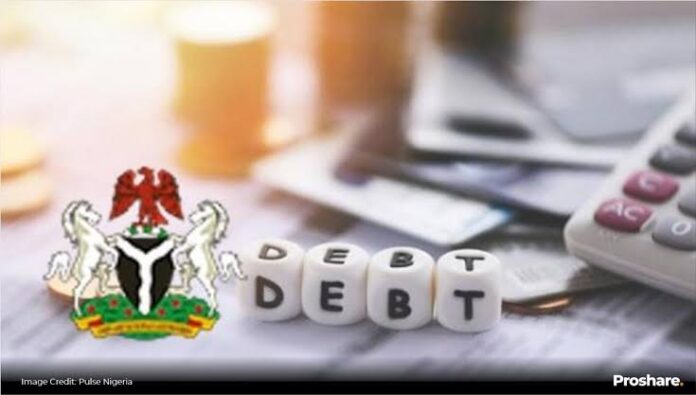By Milcah Tanimu
Nigeria’s total public debt stock has reached N121.67 trillion (approximately $91.46 billion) as of March, according to the Debt Management Office (DMO). This was disclosed by the DMO’s Director-General, Patience Oniha, in a statement released on Friday in Abuja.
The debt figure encompasses the total external and domestic debts of the Federal Government, the 36 state governments, and the Federal Capital Territory (FCT). As of March, Nigeria’s domestic debt stood at N65.65 trillion ($46.29 billion), while the external debt was N56.02 trillion ($42.12 billion).
Comparatively, the total debt stock at the end of December 2023 was N97.34 trillion ($108.23 billion). Oniha attributed the increase in debt to the rise in the domestic component, necessary to cover the deficit in the 2024 budget and the instability in the foreign exchange market during the first quarter.
“Excluding the movements in the Naira exchange rate during the first quarter of 2024, only the domestic debt component grew from N59.12 trillion on December 31, 2023, to N65.75 trillion on March 31. The increase was due to new borrowing to part-finance the 2024 budget deficit and the securitization of a portion of the N7.3 trillion Ways and Means advances at the Central Bank of Nigeria (CBN),” Oniha explained.
She emphasized that improving government revenue is crucial for ensuring debt sustainability, and that borrowing, as outlined in the 2024 budget, would continue.
The rise in Nigeria’s debt underscores the ongoing fiscal challenges facing the country, as it seeks to balance development needs with financial stability.

